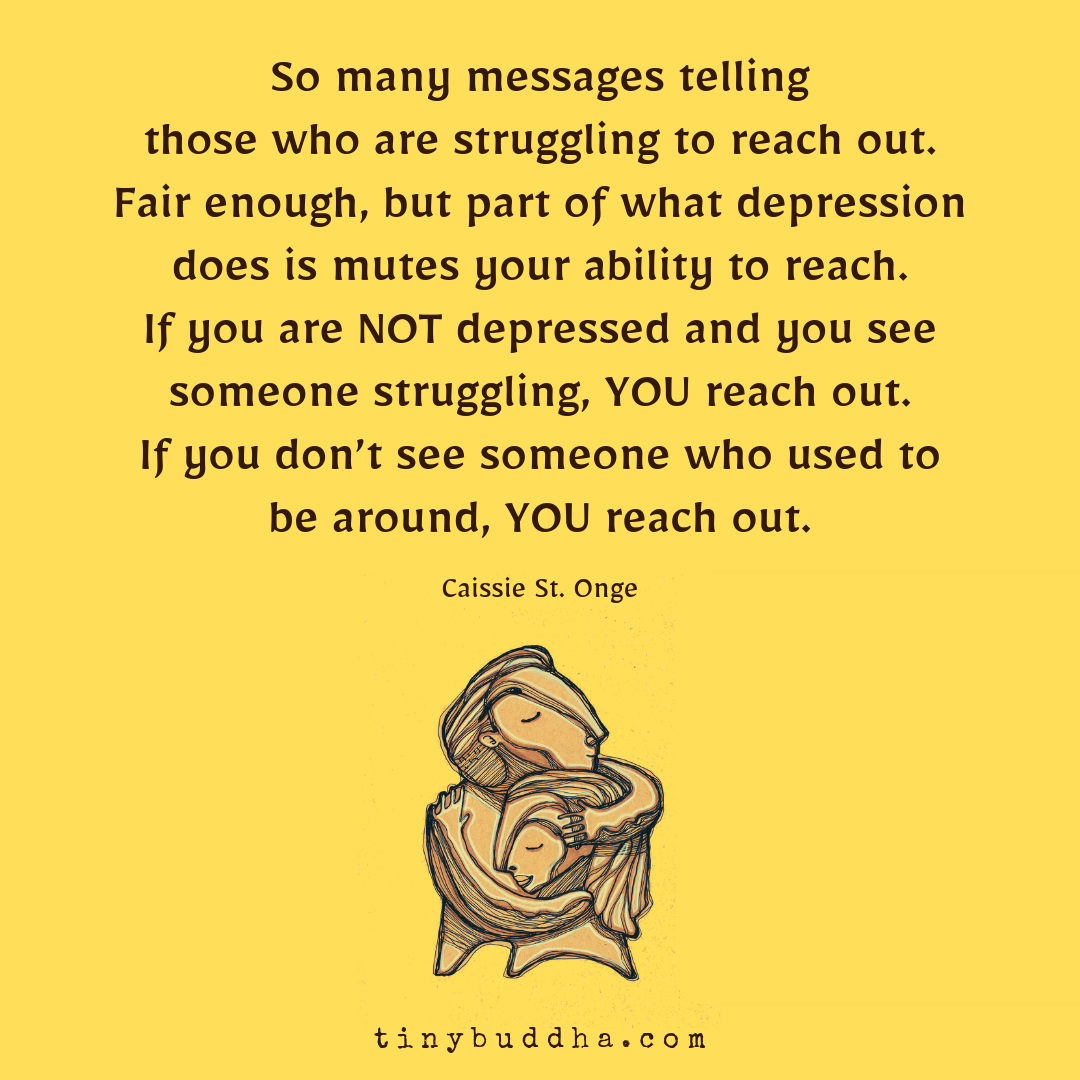Why Do I Wish I Was Dead sets the stage for a journey into the complexities of suicidal thoughts. It’s a topic often shrouded in silence, yet its presence can be overwhelming, leaving individuals feeling lost and alone. This exploration delves into the nature of these thoughts, the emotions they trigger, and the profound impact they have on relationships. We’ll examine the role of mental health conditions, life stressors, and the search for hope and recovery.
Suicidal thoughts are not a sign of weakness or a choice; they are a cry for help, a desperate plea for relief from unbearable pain. Understanding the roots of these thoughts, the feelings they evoke, and the pathways to healing is crucial for supporting individuals who are struggling and promoting a culture of empathy and compassion.
The Nature of Suicidal Thoughts

Suicidal thoughts are complex and multifaceted, often arising from a combination of factors. They can range from fleeting and passive ideas to intense and persistent urges. Understanding the nature of suicidal thoughts is crucial for providing support and intervention to individuals who may be struggling.
Types of Suicidal Thoughts
Suicidal thoughts can be categorized into different types based on their intensity, duration, and the individual’s level of intent.
- Passive Suicidal Ideation: This involves a wish to die without any specific plans or actions. It might manifest as thoughts like “I wish I wasn’t here” or “I just want it all to end.” Individuals experiencing passive suicidal ideation may not necessarily be actively seeking to end their lives but feel overwhelmed and hopeless.
- Active Suicidal Ideation: This involves a more concrete desire to die, accompanied by thoughts about methods and plans. Individuals with active suicidal ideation may start researching methods, acquiring tools, or even making preparations for suicide.
- Suicidal Intent: This refers to the level of determination and commitment to carry out suicidal thoughts. It can range from fleeting impulses to a strong resolve to end one’s life.
Mental Health Conditions and Suicidal Ideation
Mental health conditions, such as depression and anxiety, can significantly contribute to suicidal ideation.
- Depression: Individuals with depression often experience feelings of hopelessness, worthlessness, and despair, which can lead to suicidal thoughts. The lack of pleasure and motivation associated with depression can make life seem unbearable, fueling suicidal ideation.
- Anxiety: Chronic anxiety can lead to overwhelming fear, worry, and distress, contributing to suicidal thoughts. The constant feeling of being overwhelmed and unable to cope can make individuals feel trapped and hopeless, increasing the risk of suicidal ideation.
- Other Mental Health Conditions: Other mental health conditions, such as bipolar disorder, schizophrenia, and post-traumatic stress disorder (PTSD), can also increase the risk of suicidal thoughts. These conditions can cause significant emotional distress, impaired thinking, and difficulty managing life’s challenges, making individuals more vulnerable to suicidal ideation.
Life Stressors and Suicidal Thoughts
Life stressors, such as trauma, abuse, and loss, can trigger suicidal thoughts.
- Trauma: Traumatic experiences, such as physical or sexual abuse, natural disasters, or witnessing violence, can have a profound impact on mental health, increasing the risk of suicidal thoughts. Trauma can lead to feelings of helplessness, fear, and shame, making individuals feel overwhelmed and hopeless.
- Abuse: Physical, emotional, or sexual abuse can leave lasting scars, contributing to suicidal ideation. Abuse can create feelings of worthlessness, powerlessness, and distrust, making individuals feel trapped and hopeless.
- Loss: The death of a loved one, a significant relationship breakdown, or job loss can trigger suicidal thoughts. Loss can lead to feelings of grief, loneliness, and isolation, making individuals feel overwhelmed and hopeless.
Common Experiences and Feelings

Suicidal thoughts can be incredibly isolating and overwhelming. They are often accompanied by a range of intense emotions and physical sensations that can make it feel impossible to cope.
Common Feelings and Experiences
Suicidal thoughts are often linked to feelings of hopelessness, despair, and worthlessness. These feelings can be so intense that they feel like a constant weight, making it difficult to see any possibility of a brighter future.
- Hopelessness: A belief that things will never get better and that there is no point in trying. It can feel like there’s no escape from the pain and suffering.
- Despair: A deep sense of sadness, emptiness, and discouragement. It can feel like all joy and meaning have been lost from life.
- Worthlessness: A belief that you are not worthy of love, happiness, or even life itself. It can lead to feelings of shame and self-hatred.
- Anxiety: Constant worry and fear, often about the future or the consequences of your actions.
- Anger: Rage directed inward or outward, often stemming from feelings of frustration and helplessness.
- Guilt: A feeling of responsibility for the pain or suffering of others, even if it’s not your fault.
Physical Sensations
Suicidal thoughts can also manifest physically, leading to changes in your body and behavior. These changes can be subtle or severe and often contribute to the feeling of being overwhelmed.
- Fatigue: Feeling constantly tired and drained, even after sleeping.
- Lack of Motivation: Difficulty finding the energy or interest to do things you used to enjoy.
- Emotional Numbness: A feeling of detachment from your emotions and the world around you.
- Changes in Appetite: Loss of appetite or overeating, both of which can impact your physical health.
- Sleep Disturbances: Difficulty falling asleep, staying asleep, or waking up feeling refreshed.
- Physical Aches and Pains: Headaches, muscle aches, or other physical discomforts.
Personal Accounts
“It felt like a dark cloud was following me everywhere. I was constantly exhausted, even though I was sleeping more than usual. I just didn’t see the point in anything anymore. It felt like I was just going through the motions.” – Anonymous
“I was so overwhelmed with guilt and shame. I felt like I was a burden on everyone around me, and that they would be better off without me. It was like a constant voice in my head telling me I wasn’t worth anything.” – Anonymous
The Impact of Suicidal Thoughts on Relationships
Suicidal thoughts can have a profound and devastating impact on relationships with family, friends, and romantic partners. The secrecy and shame associated with these thoughts often lead to isolation and distance, making it challenging to seek support and connect with loved ones.
The Effects of Suicidal Thoughts on Relationships
Suicidal thoughts can create a significant strain on relationships, leading to a range of negative consequences.
- Increased Conflict: The emotional turmoil and stress associated with suicidal thoughts can lead to increased conflict and arguments within relationships. Loved ones may feel overwhelmed, frustrated, and unable to understand or support their struggling loved one. This can create a cycle of tension and negativity, further isolating the individual experiencing suicidal thoughts.
- Communication Breakdown: Suicidal thoughts can create a communication breakdown between individuals and their loved ones. Fear of judgment, shame, and a sense of burden can prevent individuals from opening up about their struggles, leading to misunderstandings and a growing sense of isolation.
- Emotional Distance: The emotional burden of suicidal thoughts can create emotional distance between individuals and their loved ones. The individual may withdraw from social activities, become emotionally unavailable, and struggle to connect with others. This can lead to feelings of loneliness, rejection, and a sense of being misunderstood.
- Guilt and Shame: Loved ones may feel a sense of guilt and shame for not being able to prevent their loved one’s suicidal thoughts. This can lead to feelings of inadequacy and a desire to withdraw from the relationship, fearing they will only cause more pain.
Seeking Help and Support: Why Do I Wish I Was Dead

It’s important to remember that you are not alone in this struggle. There are resources and support systems available to help you navigate suicidal thoughts and find a path toward healing.
Crisis Hotlines, Why do i wish i was dead
Crisis hotlines are confidential, 24/7 phone services staffed by trained professionals who can provide immediate support and guidance during a crisis. They offer a safe space to talk about your feelings and develop a plan for safety. Here are some well-known and reputable crisis hotlines:
- The National Suicide Prevention Lifeline: 988
- The Crisis Text Line: Text HOME to 741741
- The Trevor Project: 1-866-488-7386 (for LGBTQ youth)
These hotlines are a vital resource for individuals experiencing suicidal thoughts. They provide immediate support, connect individuals with resources, and offer a lifeline during a crisis.
Mental Health Professionals
Mental health professionals, such as therapists, psychiatrists, and counselors, are trained to assess, diagnose, and treat mental health conditions, including suicidal thoughts. They can provide individual therapy, medication management, and support in developing coping mechanisms and strategies for managing suicidal thoughts.
- Therapists: Offer talk therapy to help individuals understand their thoughts, feelings, and behaviors, and develop coping skills for managing distress.
- Psychiatrists: Diagnose and treat mental health conditions, including prescribing medication when appropriate.
- Counselors: Provide support and guidance for individuals facing a range of challenges, including suicidal thoughts.
Support Groups
Support groups offer a safe and non-judgmental space for individuals to connect with others who share similar experiences. They provide a sense of community, emotional support, and practical advice from people who understand what you’re going through.
- Online Support Groups: Provide a platform for connecting with others remotely, offering anonymity and flexibility.
- In-Person Support Groups: Offer a more personal and interactive experience, allowing for face-to-face interaction and support.
Seeking Help: A Step-by-Step Guide
Here’s a step-by-step guide for seeking help and initiating a conversation about suicidal thoughts with a trusted individual:
- Identify a trusted individual: This could be a family member, friend, therapist, or anyone you feel comfortable confiding in.
- Choose a safe and private setting: Find a place where you can talk openly and honestly without distractions.
- Start by expressing your feelings: Let the person know that you’re struggling and that you need their support.
- Be honest and specific: Share your thoughts and feelings about suicide without fear of judgment.
- Ask for help: Clearly state what you need from the person, whether it’s listening, support, or professional help.
- Don’t be afraid to seek professional help: If you feel overwhelmed or unable to cope, reach out to a mental health professional.
The Importance of Hope and Recovery
It’s essential to remember that suicidal thoughts are treatable, and recovery is possible. While the pain and darkness may feel overwhelming, there is light at the end of the tunnel. Many people who have experienced suicidal thoughts have successfully navigated these challenging times and found hope.
Examples of Recovery
It’s encouraging to know that many individuals have overcome suicidal thoughts and have found meaning and purpose in their lives.
- For example, a study published in the Journal of Affective Disorders found that 80% of individuals who had attempted suicide reported that they were glad to be alive five years later. This study highlights the possibility of recovery and the importance of seeking help.
- Another example is the story of a young woman named Sarah, who struggled with suicidal thoughts for years. After seeking therapy and support from her family and friends, she learned coping mechanisms and discovered her passion for art. Now, she uses her art to express her emotions and connect with others who have similar experiences.
Coping Mechanisms and Strategies
There are a number of coping mechanisms and strategies that can help manage suicidal thoughts and promote mental well-being.
- Mindfulness and Meditation: These practices can help you become more aware of your thoughts and feelings, and learn to manage them in a healthier way.
- Exercise: Regular physical activity releases endorphins, which have mood-boosting effects. It can also help to reduce stress and improve sleep.
- Connecting with Others: Building strong relationships with loved ones can provide support and a sense of belonging. Talking to someone you trust about your feelings can be incredibly helpful.
- Creative Outlets: Engaging in creative activities, such as art, music, or writing, can be a healthy way to express emotions and find solace.
- Professional Help: Therapy and medication can be invaluable tools for managing suicidal thoughts and addressing underlying mental health conditions.
Remember, you are not alone. There are people who care about you and want to help. Reaching out for help is a sign of strength, not weakness.
Navigating suicidal thoughts is a challenging journey, but it’s not one that has to be endured alone. By understanding the complexities of these thoughts, reaching out for support, and embracing hope, individuals can find a path towards healing and a brighter future. Remember, seeking help is a sign of strength, not weakness, and there are resources available to provide guidance and support every step of the way.
Helpful Answers
What are some common triggers for suicidal thoughts?
Triggers can vary greatly from person to person, but some common ones include: significant life changes (like loss of a loved one, job loss, or relationship breakdown), mental health conditions, trauma, abuse, and financial difficulties.
Is it okay to talk about suicidal thoughts with someone?
Yes, it’s crucial to talk about these thoughts with someone you trust. Sharing your feelings can be a huge relief and help you feel less alone. Don’t hesitate to reach out to a friend, family member, therapist, or crisis hotline.
What if I’m worried about someone who might be having suicidal thoughts?
It’s essential to take any mention of suicidal thoughts seriously. Express your concern, encourage them to seek professional help, and offer your support. You can also reach out to a crisis hotline for guidance.






